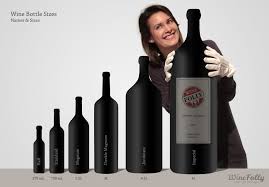Life-long Learning, Degorging, and Zeugmas
Leave a commentNovember 6, 2014 by libroshombre
Our local Osher Life-Long Learning Institute is a joy. Learning for its own sake’s a rich experience, and skipping class and improving upon the teacher’s insights with impunity are marvelous bonuses. Those enrolled in OLLI’s Mastering Wine 101 course are particularly diligent scholars, and instructor Kathy Lavelle, a certified wine professional, receive s little sass from her enthralled class. It’s a jolly gathering anyway, but some of the oenological vocabulary introduced recently inspired added mirth. “Degorging” engendered wild mental imagery until Kathy explained that this is a vintner’s process of removing sediment from aging champagne by chilling the upturned bottles until the sediment congeals. Internal pressure shoots it out of the bottle when the cap’s removed, and the bottle’s then topped up and re-corked.
s little sass from her enthralled class. It’s a jolly gathering anyway, but some of the oenological vocabulary introduced recently inspired added mirth. “Degorging” engendered wild mental imagery until Kathy explained that this is a vintner’s process of removing sediment from aging champagne by chilling the upturned bottles until the sediment congeals. Internal pressure shoots it out of the bottle when the cap’s removed, and the bottle’s then topped up and re-corked.
Also amusing were the Old Testament names of the enormous bottles favored by collectors of rare Bordeaux wines, like the 16-bottle Balthazars and 20-bottle Nebuchadnezzars. I was thrown by mention of “surly wines.” Too many wines in my usual price range qualified as “surly.” However, later consultation with Noel Wien Library’s copy of the Oxford Companion to Wine reve aled that the reference was to “sur lie” wines. “Lees” is Old English for the French “lies,” meaning sedimentary dregs. So “sur lie” means “upon the lees” and describes wine that’s had the skins and other natural detritus left in the wine for a while for flavoring.
aled that the reference was to “sur lie” wines. “Lees” is Old English for the French “lies,” meaning sedimentary dregs. So “sur lie” means “upon the lees” and describes wine that’s had the skins and other natural detritus left in the wine for a while for flavoring.
Confusing words were featured in a contest sponsored recently by A.Word.A.Day. Subscribers to the free service submitted entries in several categories, including zeugmas, antimetaboles, and synecdoches. Bob’s Poetic Byway online site defines “zeugma” as “a figure of speech in which a single word, usually a verb or adjective, is used in the same grammatical and semantic relationship with two or more other words.” The contest’s winning zeugma, for instance, was, “He checked out the book and the librarian.” Antimetaboles repeat words or ideas in reverse order. “The rat race creates a race of rats” is a sample entry. The synecdoche is a “figure of speech in which a part stands for the whole or vice versa,” as in “She’s the head librarian.”
Words can also be hurtful, sometimes intentionally so, as the awful political season exemplified. An example is pundit George Will’s assertion that President Obama’s heavy use of personal pronouns in his speeches reveals a pervasive, unbalanced narcissism. A University of Pennsylvania analysis revealed that, by this measure, Obama is the third least narcissistic of the fourteen men who’ve held that office since 19 35, trailing only Hoover and FDR.
35, trailing only Hoover and FDR.
If you want true narcissism find an Internet troll, defined by the American Heritage Dictionary as “a person who posts inflammatory or otherwise unwanted material on an electronic forum, especially anonymously.” Their best-known tactic is to post an online comment that’s so outrageous it gets responses from indignant readers. “A New Study Shows That Internet Trolls Really Are Just Terrible People,” a Canadian study cited in PsychologyToday.com, described the “Dark Tryad,” an especially nefarious combination of personality traits: narcissism, Machiavellianism (“manipulation and exploitation of others,” according to Wikipedia), and psychopathy (“antisocial behavior, impulsivity, selfishness, callousness, and remorselessness”). The study found that “Dark Tryad scores were highest among people who said trolling was their favorite Internet activity … it might be said that online trolls are prototypical everyday sadists … the best thing you can do is ignore them.”
Thank goodness MentalFloss.com published “25 of the Happiest Words in English,” by Arika Orkent. It describes how some University of Vermont mathematicians took 10,000 words found in sources like Google Books, the NY Times, Twitter, and music lyrics and had people rate them on a scale from least to most happy. “Laughter” and “terrorist” came in first and last, respectively, but when it came to the others, “it turns out that positivity heaped on positivity becomes, like sugar or a giant clown smile, sickening after a point.” The other top words, for example, were “happiness,” “love,” “happy,” “laughed,” “laugh,” etc. Okrent suggested some lower-scored words are “anchors of true quiet positivity in a sea of toothy grins,” including “interesting” (172), “dinner” (239), and “agree” (947).
“Warmth” would probably score higher in Alaska than 375th. And, as Captain Kangaroo foretold, “please” and “thanks” are always magical.
Category: learaning, parts of speech, words | Tags: A.Word.A.Day, antimetaboles, Captain Kangaroo, happiest words, Life-long learning, Noel Wien Library, Obama, OLLI, Osher, troll, wine, zeugmas